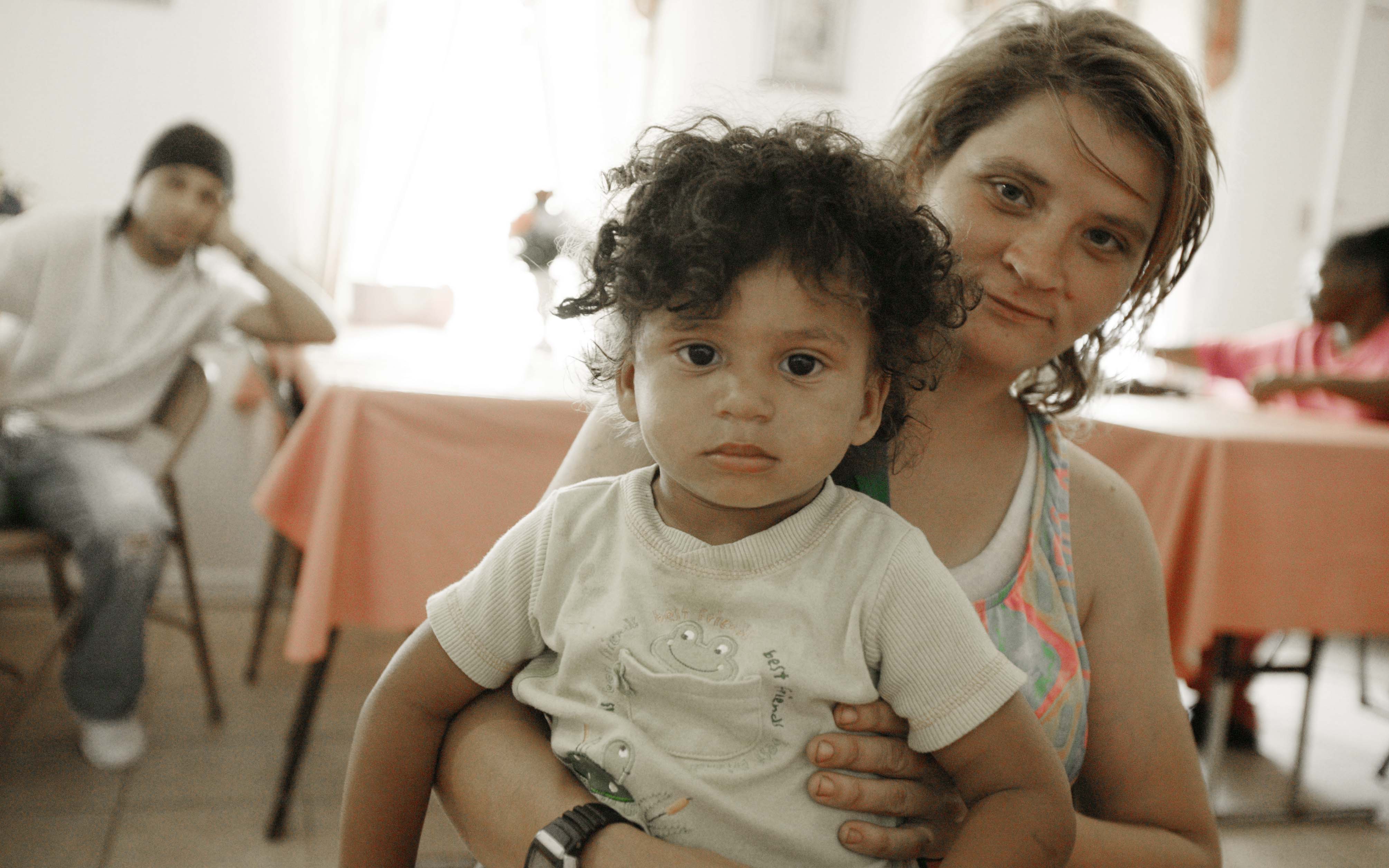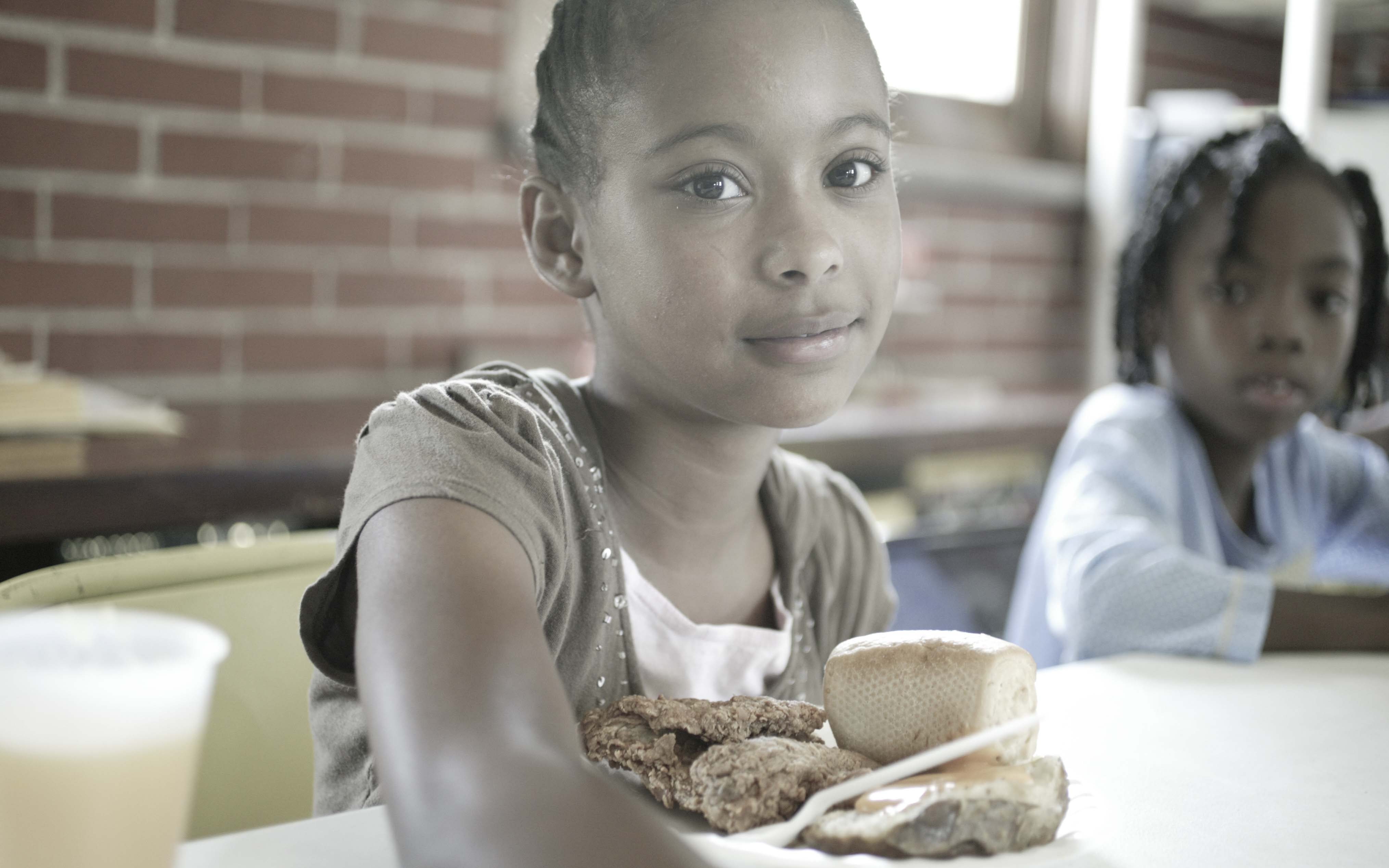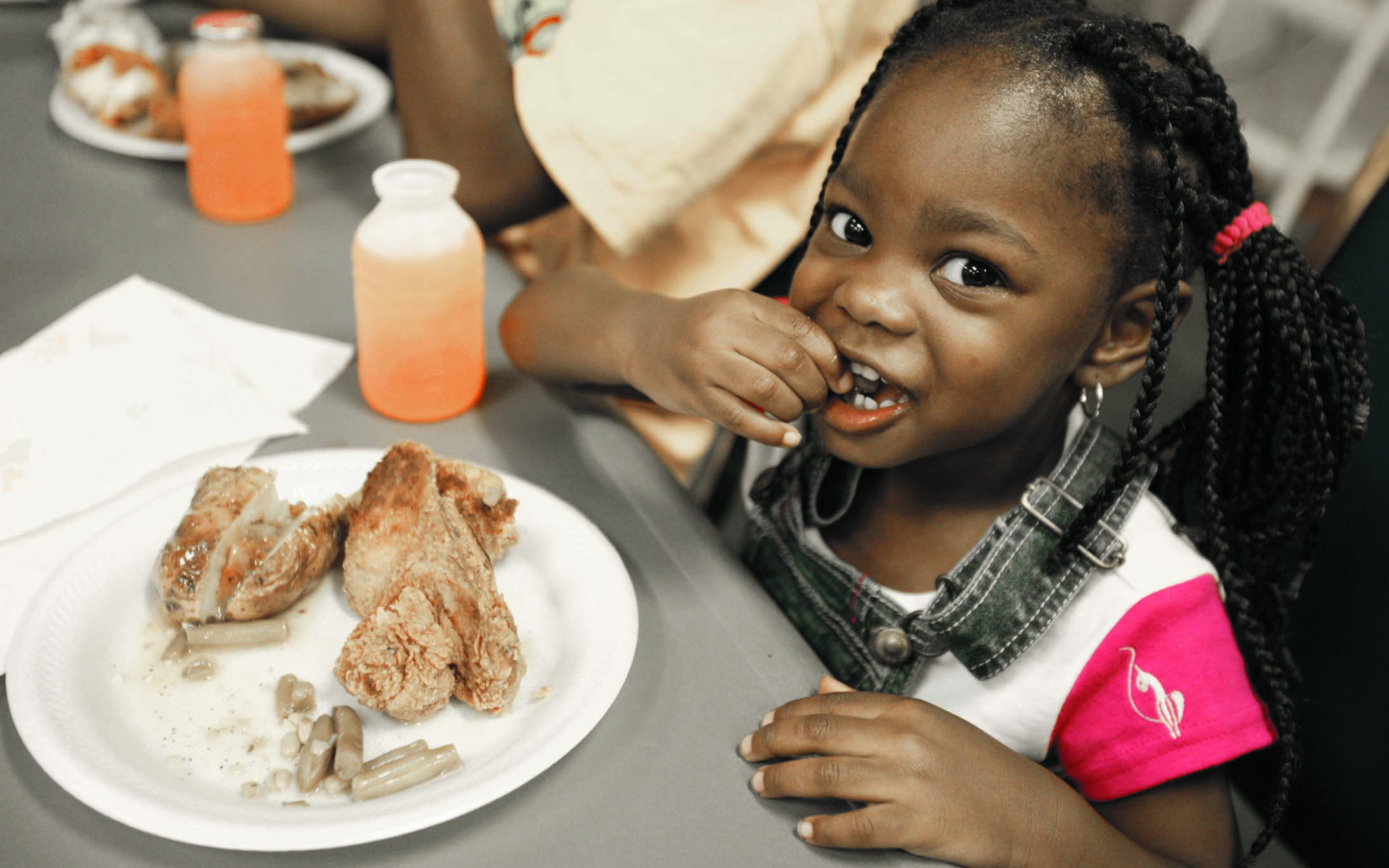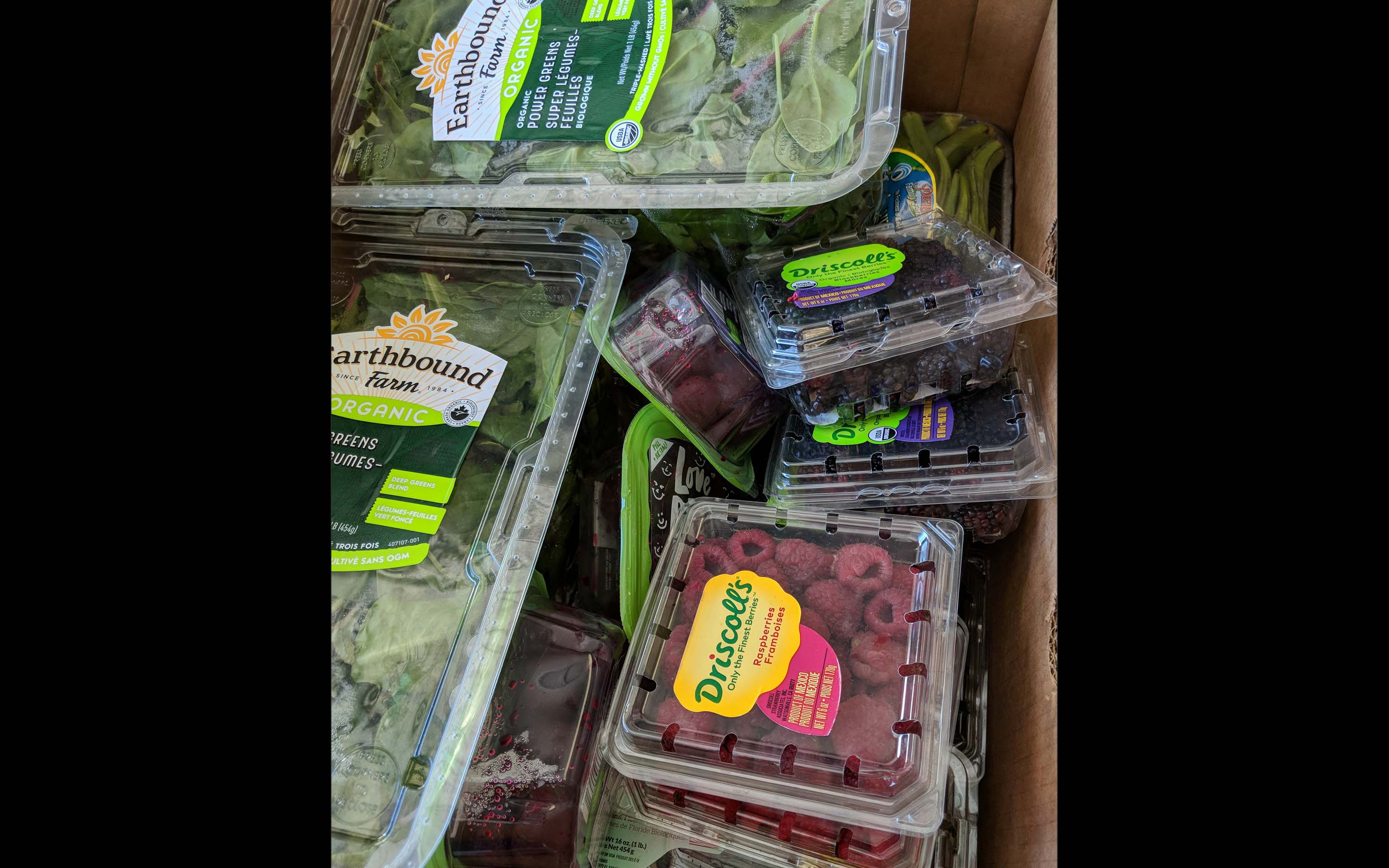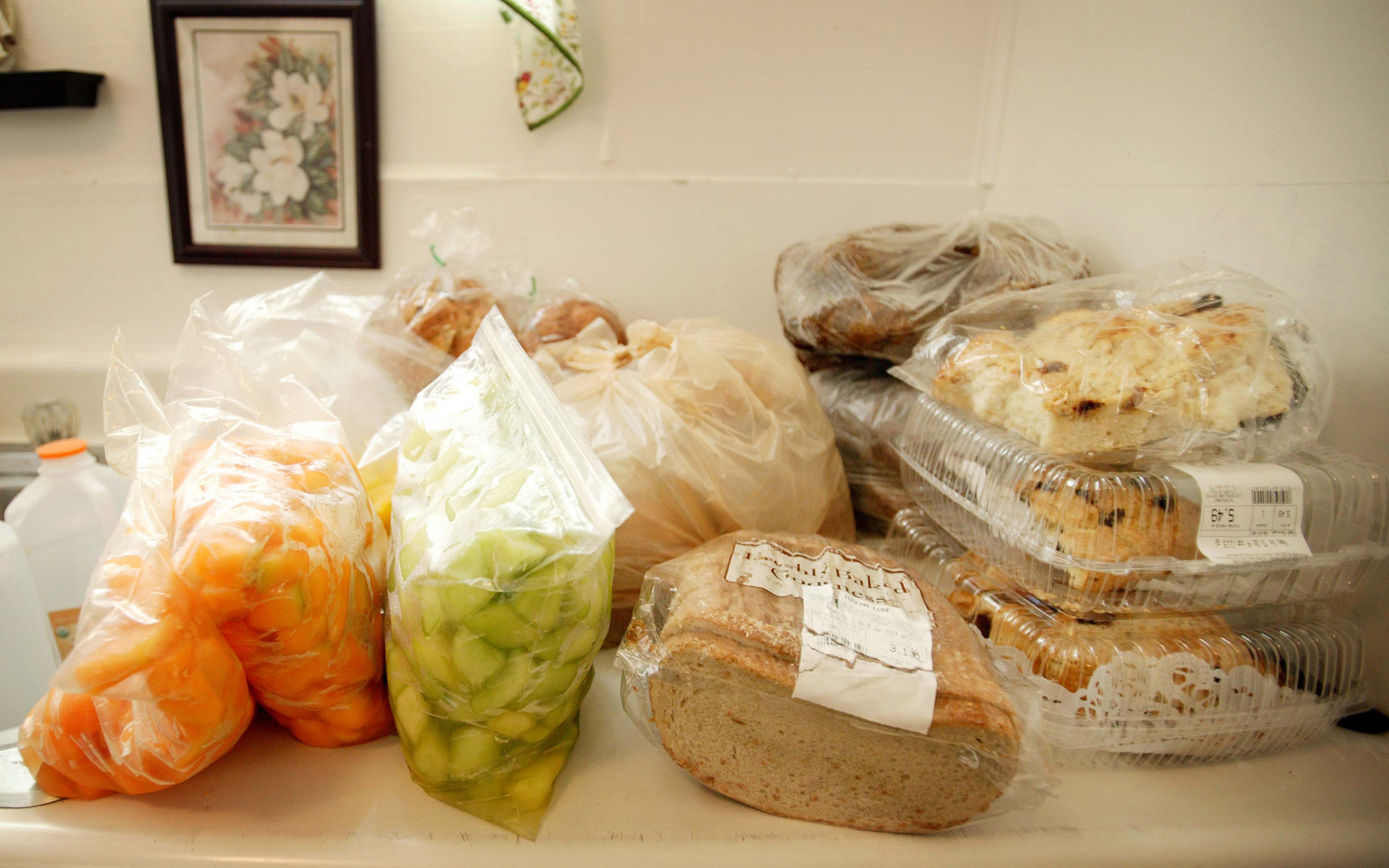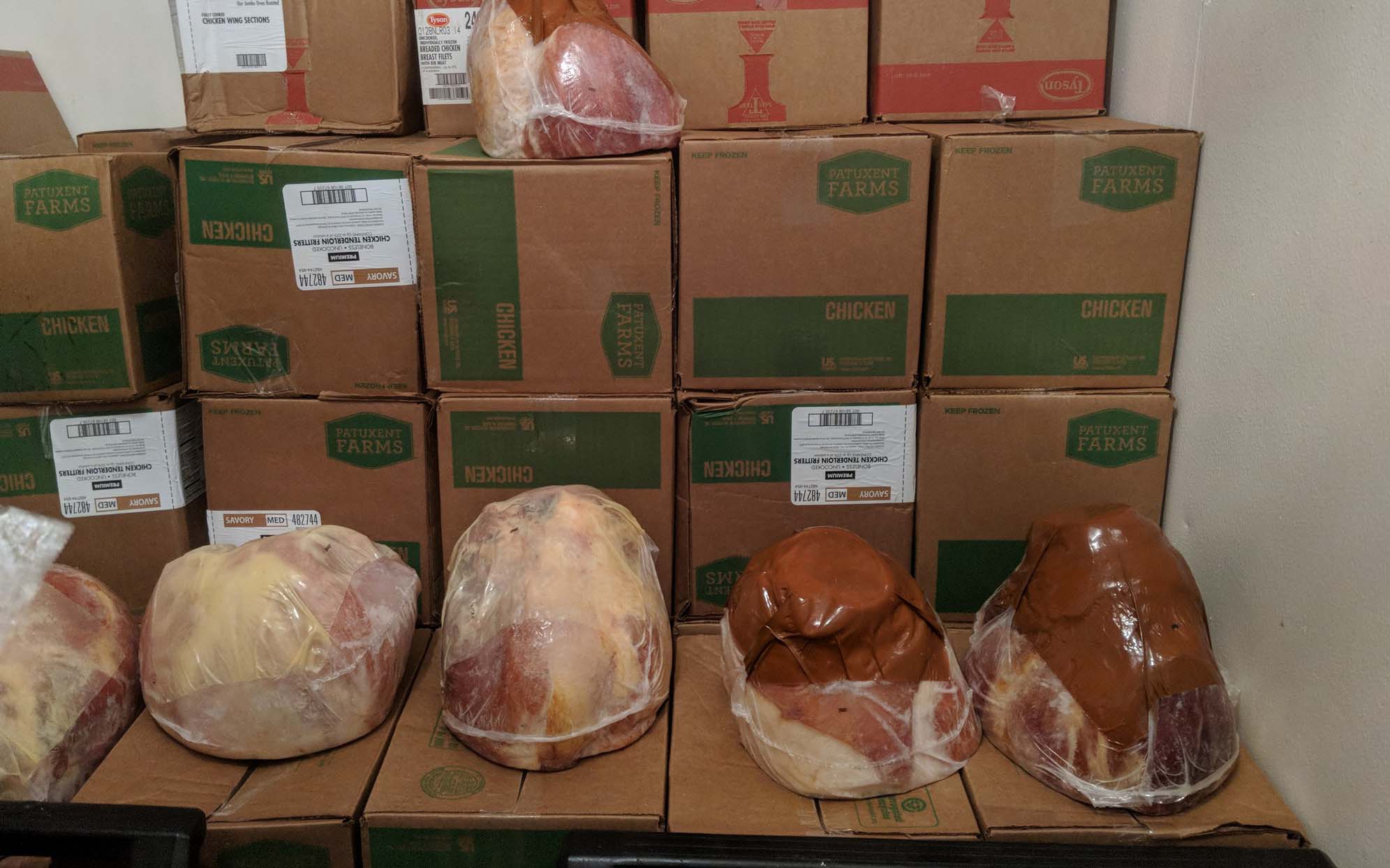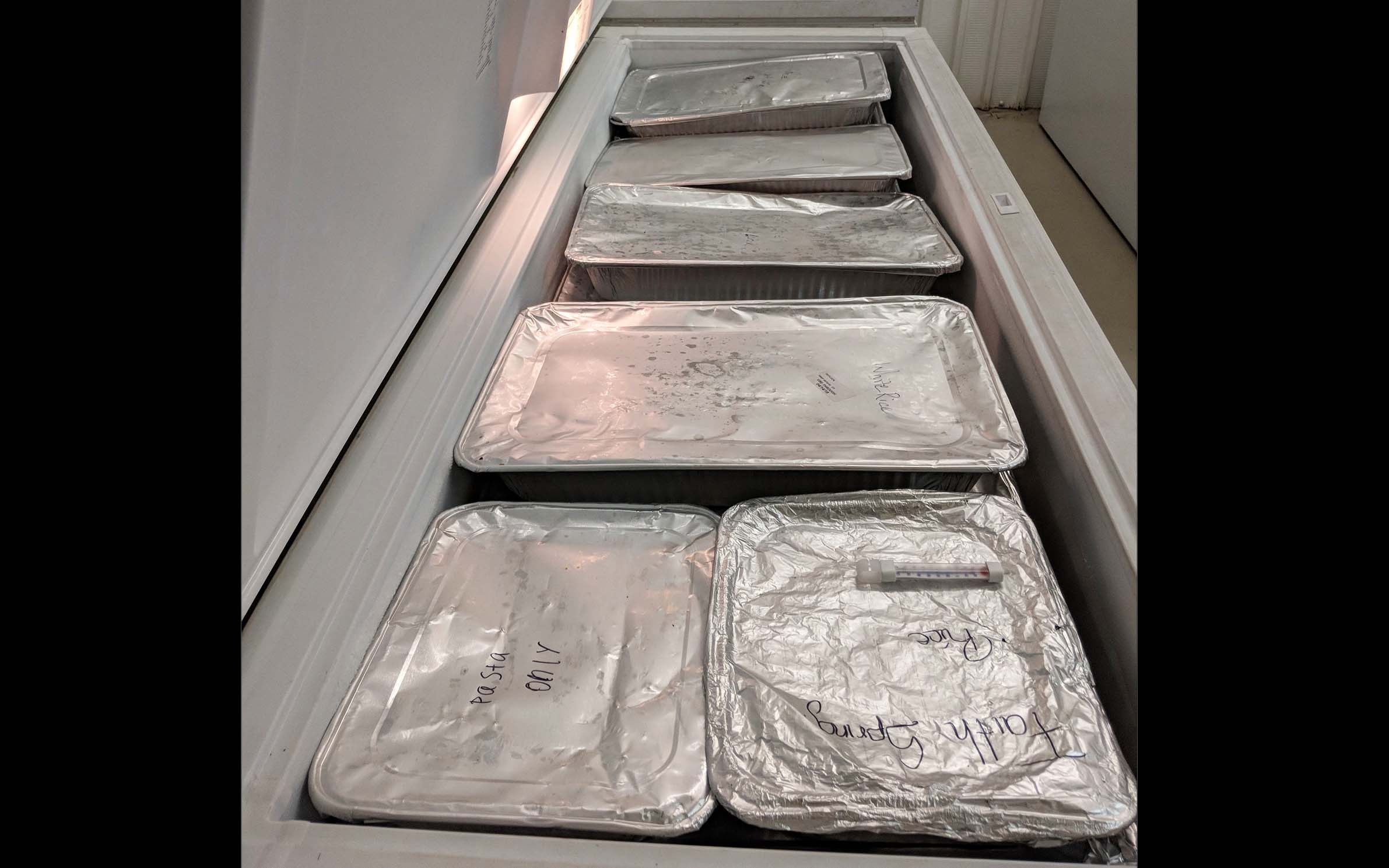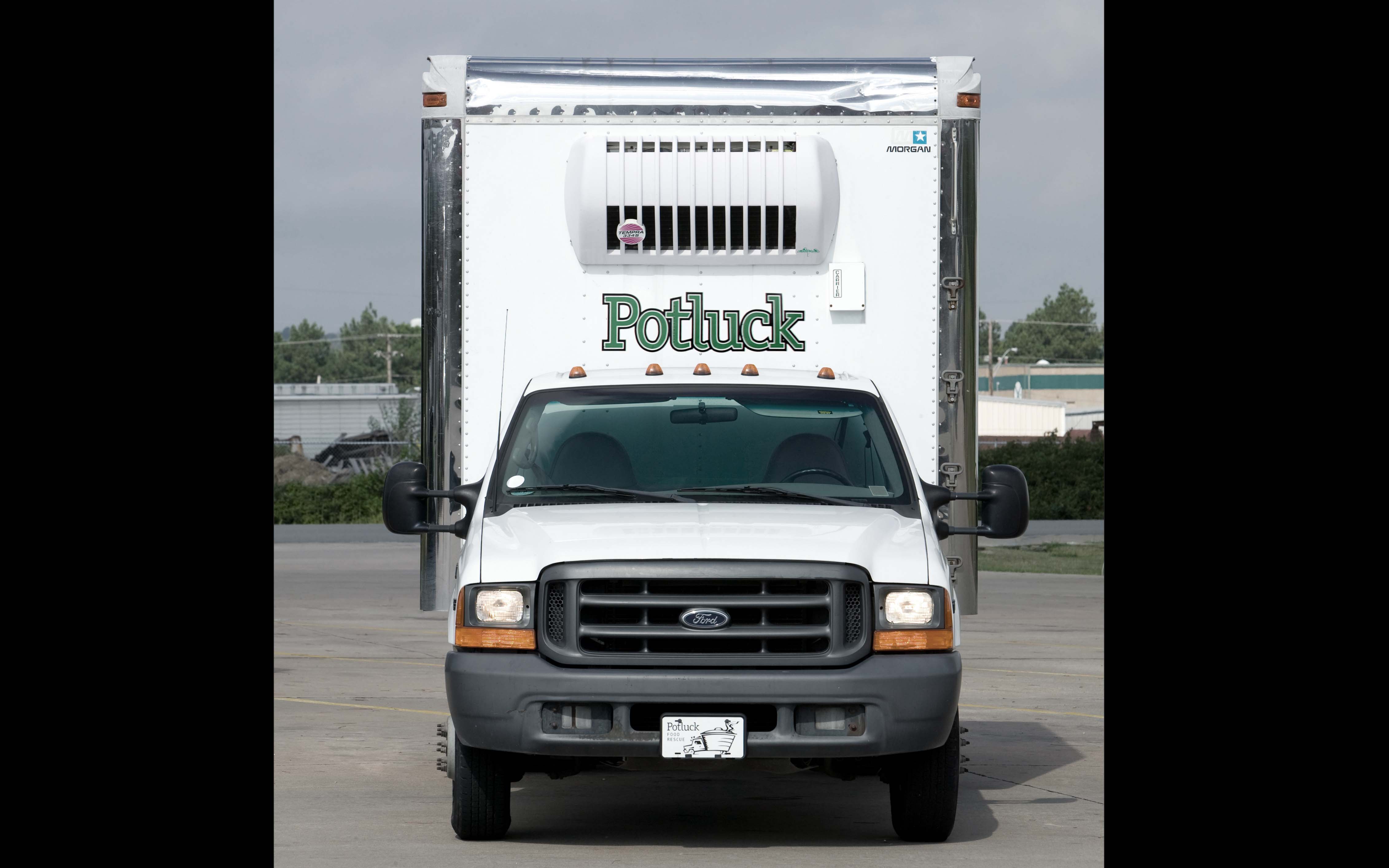Potluck Food Rescue going strong 30 years in North Little Rock
April 29 - May 5, 2019
By Becca Bona
When you were younger, your mom might have firmly told you to eat everything on your plate, citing those less fortunate that might be skipping a meal.
And while that might have seemed abstract to your full belly, Arkansas is, unfortunately, no stranger to hunger.
The state ranks third in the nation for very low food security, according to the Arkansas Food Bank. The Food Bank also notes that 25 percent of children in the state have limited access to adequate food, while one in five Arkansans struggle to provide enough food for their family. These numbers can be discouraging, but it’s heartening to know that there are various organizations working to fill this gap.
Potluck Food Rescue, for instance, has been working quietly but steadily to fill this gap from their offices nestled in downtown North Little Rock for quite some time.
In fact, Potluck’s origins go back to 1989, executive director Sylvia Blain notes. Originally an offshoot of the Junior League, the story goes that 30 years ago Francis Haut witnessed a Kentucky Fried Chicken worker discarding perfectly edible food into the trash can. Her immediate thought was that someone could benefit from this meal that would otherwise be thrown out.
“She took the chicken to Our House,” Blain explained. “And the idea [for Potluck] was born. The Junior League got together, voted on it, and started sending a little bit of money towards it.”
And while Potluck has since branched out from fried chicken, the nonprofit has a large job to do, as nearly 100,000 pounds of food are thrown away daily in Pulaski County alone.
Their main goal is to save good food from being wasted by using it to feed hungry people, which not only helps people, but brings a sustainability angle to the table, as well.
Blain, who’s background in urban sociology and anthropology eventually lead her to food, said, “One of the good things for [Potluck] is that we’re an idea that the time has finally come to shine.”
The Environmental Protection Agency (EPA), for instance, has recently starting pushing their hierarchy of food waste and encouraging people to follow it. According to the EPA, at the top of the hierarchy, food waste should be reduced at the source. Next, it should be utilized to feed hungry people; then beneath that, it should go towards feeding hungry animals. Beyond that the waste could be utilized via industrial energy uses and even composting before it ever reaches a landfill.
In central Arkansas, “food waste” essentially refers to “extra food.”
Blain further explained – “It’s overages. We have overages when you’ve ordered too much as a grocery store owner or even a restaurant owner. For instance maybe you ordered two cases of milk that you aren’t going to use and they’re about to expire.”
That’s where Potluck comes in.
“I’m redistributing between 12 and 15,000 pounds of food a month right now,” Blain said. After the food makes it to Potluck’s warehouse, approved hunger relief partners come and pick it up. The nonprofit currently only employs two part-time drivers, with Blain as the only full-time employee, and simply doesn’t have the bandwidth to deliver.
Agencies with a commercial kitchen like Our House, Union Rescue Mission, River City Ministries, and Helping Hands are often the first that Blain reaches out to, as they can take a large amount of varied foods. Other huger relief partners may be limited to less storage space.
Depending on the freshness of the food, Potluck can have a 24/48 hour turnaround time including pick up and redistribution.
As far as partners go, the only requirement that Potluck lays out is that hunger relief partners must be a legitimate 501(c)3 nonprofit, or be a church with a recognized state charter. Also, hunger relief partners cannot discriminate who they give rescued food to, for any reason.
Blain’s day-to-day is a lot like constantly monitoring a moving puzzle, but she wouldn’t trade it for anything. Everything she has worked toward professionally has led her happily to Potluck.
“This job is a marriage of all the things I’ve done in the past. I love it,” she said.
In fact, it was her love of food systems which originally lead her to the nonprofit world. Before 2008 she worked as a consultant for organizations like Heifer International and other nonprofits. After the recession, however, she had to find a new job.
She ended up working for the Little Rock Convention and Visitor’s Bureau (LRCVB) in both tourism and event planning, which, it turns out – would help her when the opportunity arose with Potluck.
Blain finds herself excited to host fundraising events – especially the quirky annual “Not At All A Ball” event. This non-event should hit mailboxes in early May, with specially designed cards meant to showcase food in creative ways. This typically brings in one third of the operating budget for Potluck and is essential for keeping the ship steady.
“People can give what they would if they were to go to a gala,” she explained, “except they don’t have to actually go.”
She also has become a part of the hospitality association – something that she learned of during her time with the LRCVB.
“I joined the hospitality association so I could get in front of hotels and restaurants as a partner rather than an outsider,” she said. She finds herself doing a lot of education on sustainability and food rescue, as she continued, “People are worried about liability.” Thankfully those who donate food are protected under both a federal and state level thanks to the Good Samaritan Law.
That being said, Potluck operates within health guidelines. For instance, food served buffet style or self-served can’t be rescued, and labels must be clearly marked in compliance with the USDA.
“I tell people to put out small amounts, and keep whatever is left over in the original container it was served from,” Blain explains. This way the food is safe to serve later on to those who need it.
Future goals include obtaining more institutional partners (like UAMS and the Arkansas Heart Hospital), so she can ultimately expand the overall operations. In order to do that, however, she’ll need more funds.
“I have to expand my donor base,” said Blain. “It’s not a terrible problem to have, but we could be picking up three times as much food with more vans and more people. And the need is there, no mater what.”
To get involved or give to Potluck Food Rescue, visit www.potluckfoodrescue.org.
Sources: Potluck Food Rescue, EPA, Arkansas Food Bank
PHOTO CAPTIONS:
Unfortunately, hunger is alive and well in Arkansas. And while many noteworthy organizations fight the good fight against it, few 30 year-old nonprofits have done so quite like Potluck Food Rescue – with sustainability in mind. Potluck rescues food waste and gets it to those in need. Consider the following. As a grocery store owner, you might have over-ordered a few items. Would you rather throw them out, or have them go towards feeding those in need? Cue Potluck Food Rescue and the redistribution of thousands of pounds of food every day in Pulaski County. (All photos by Nancy Nolan unless otherwise noted)



